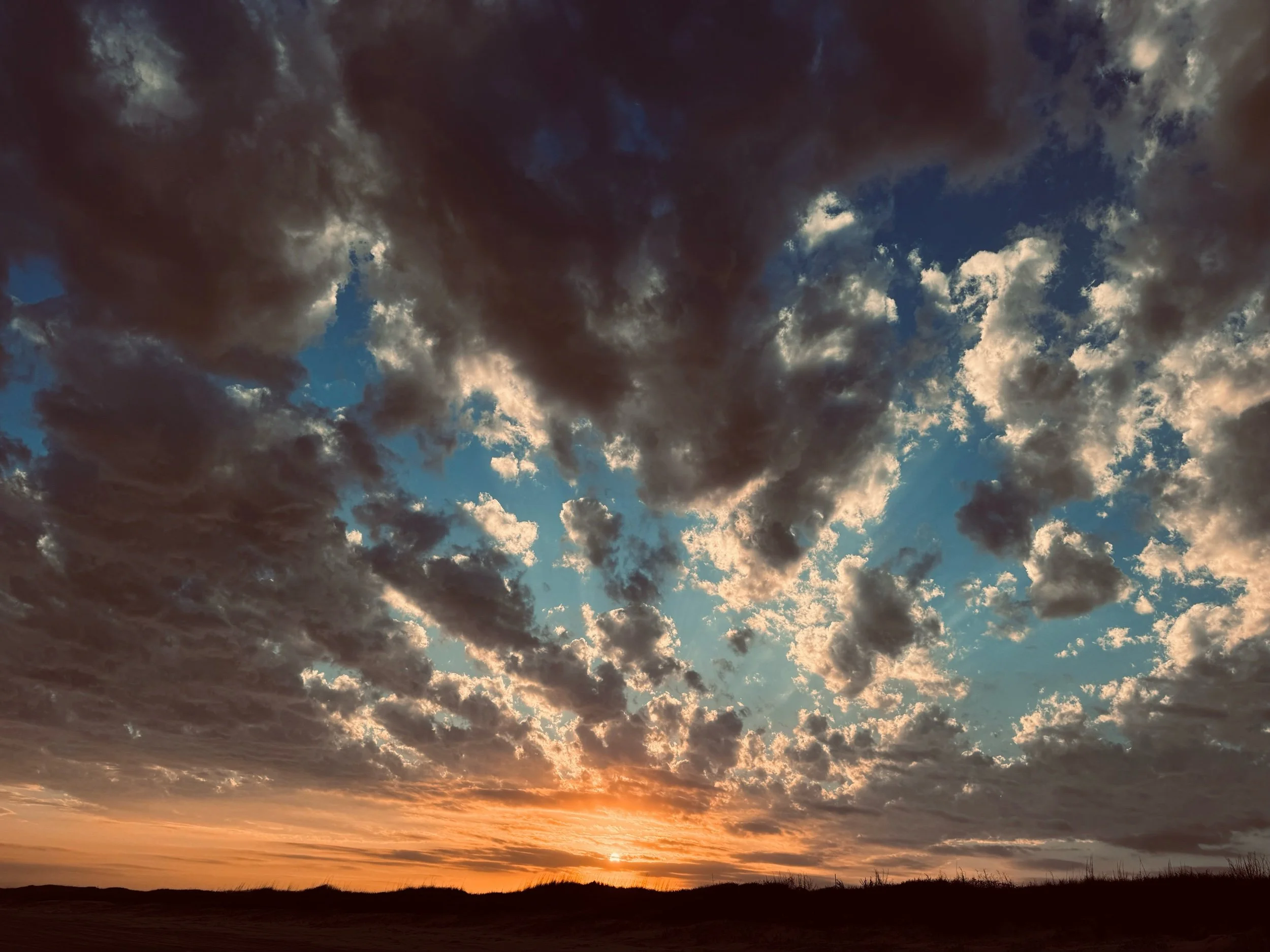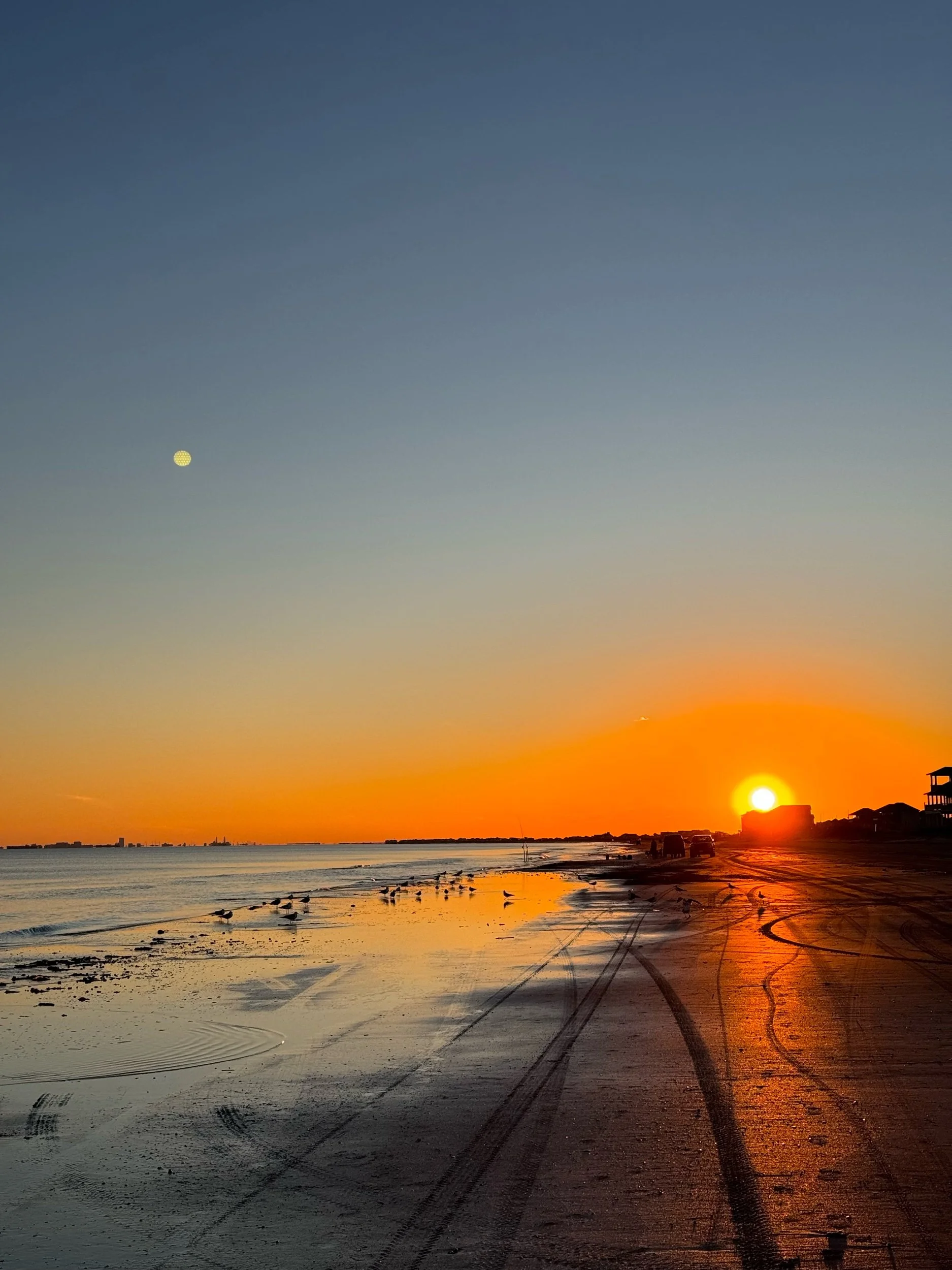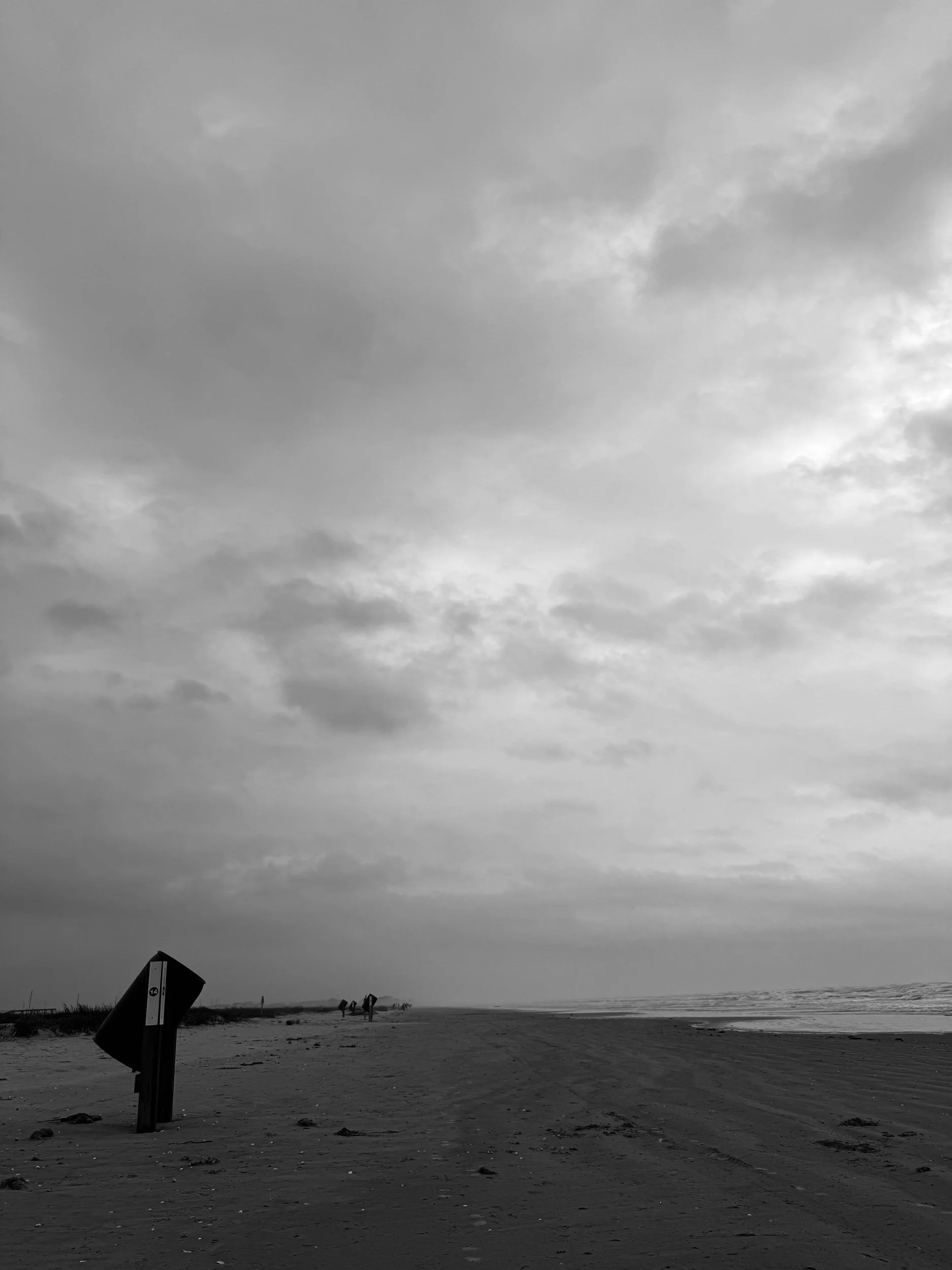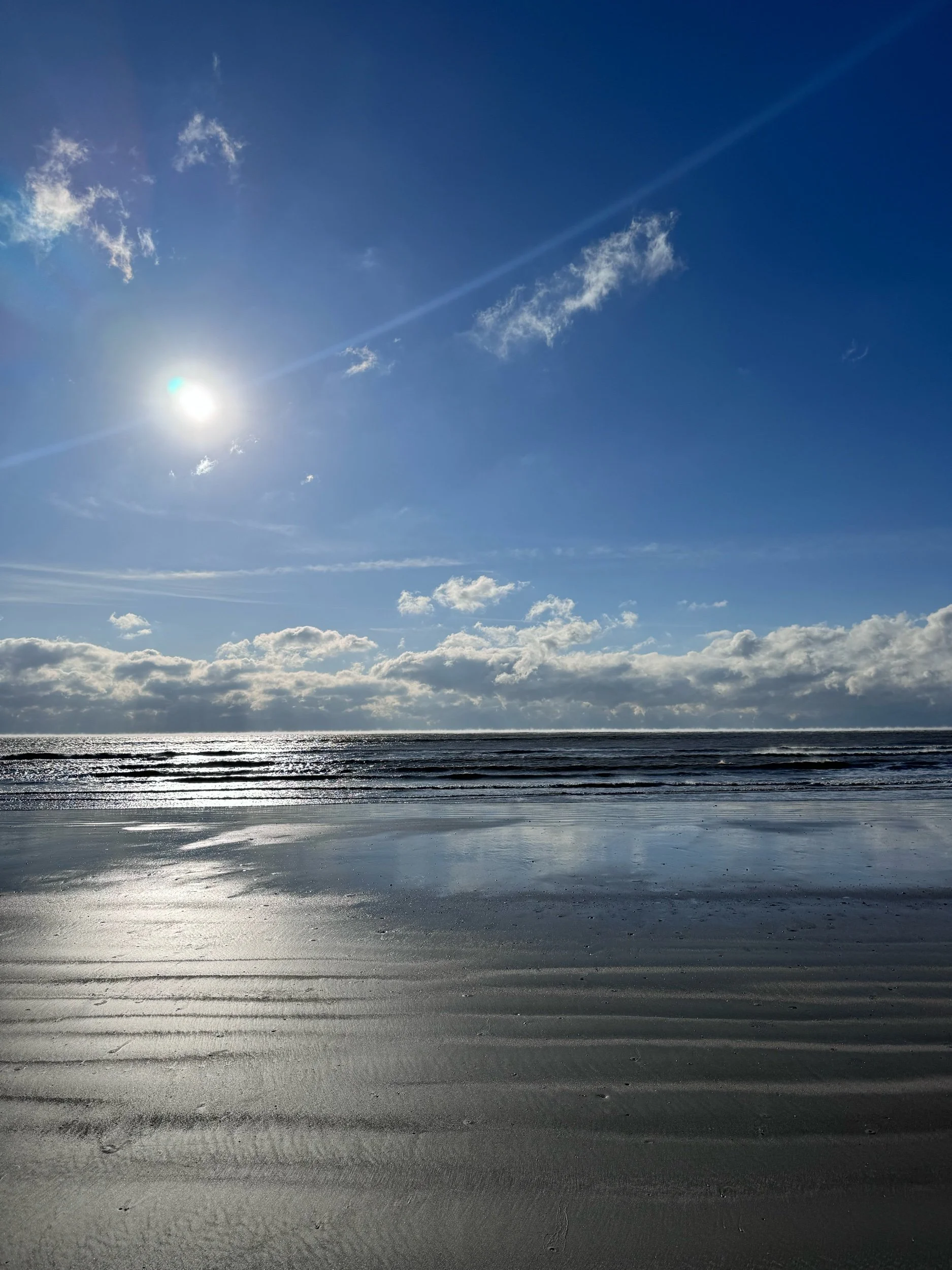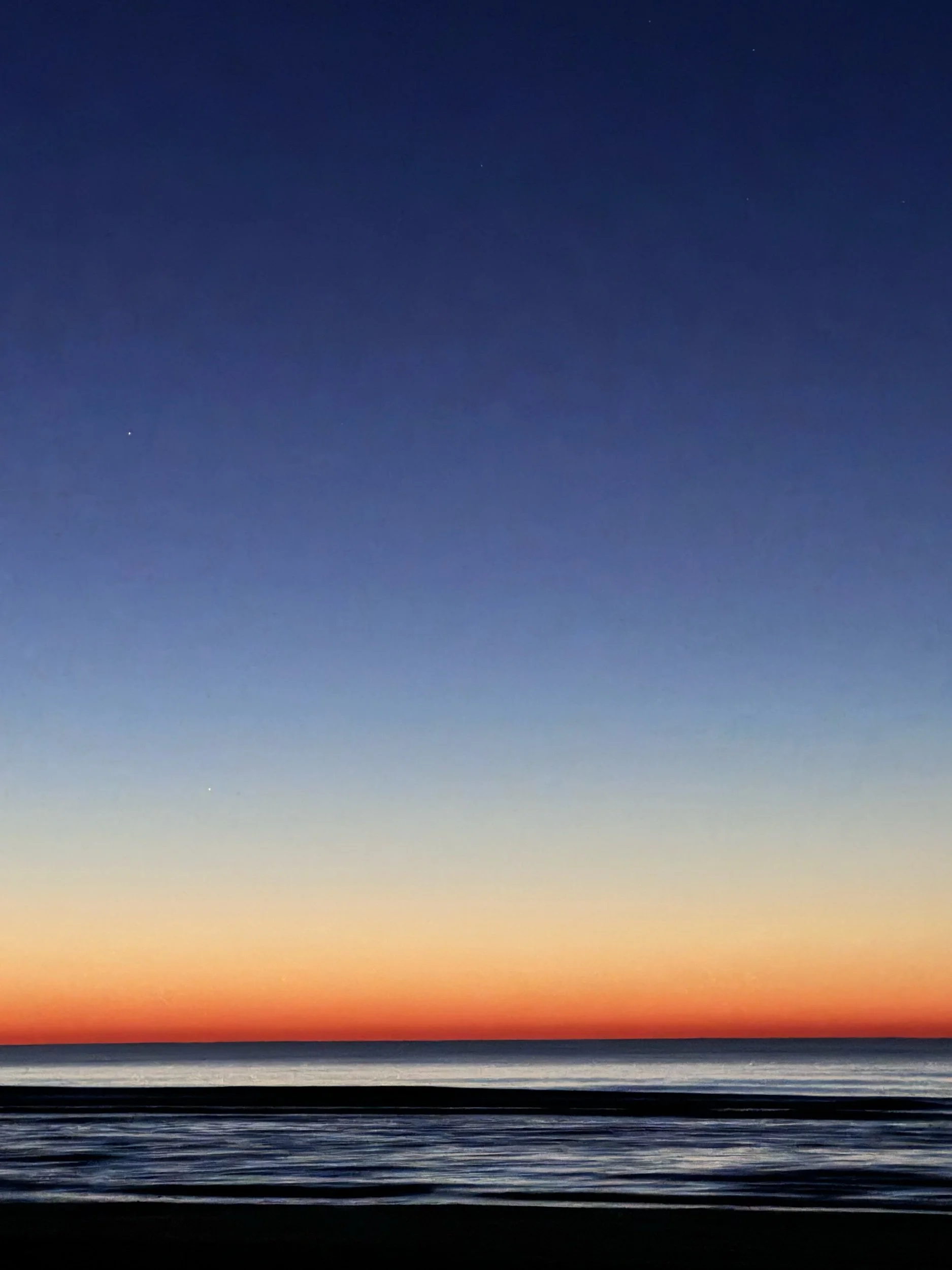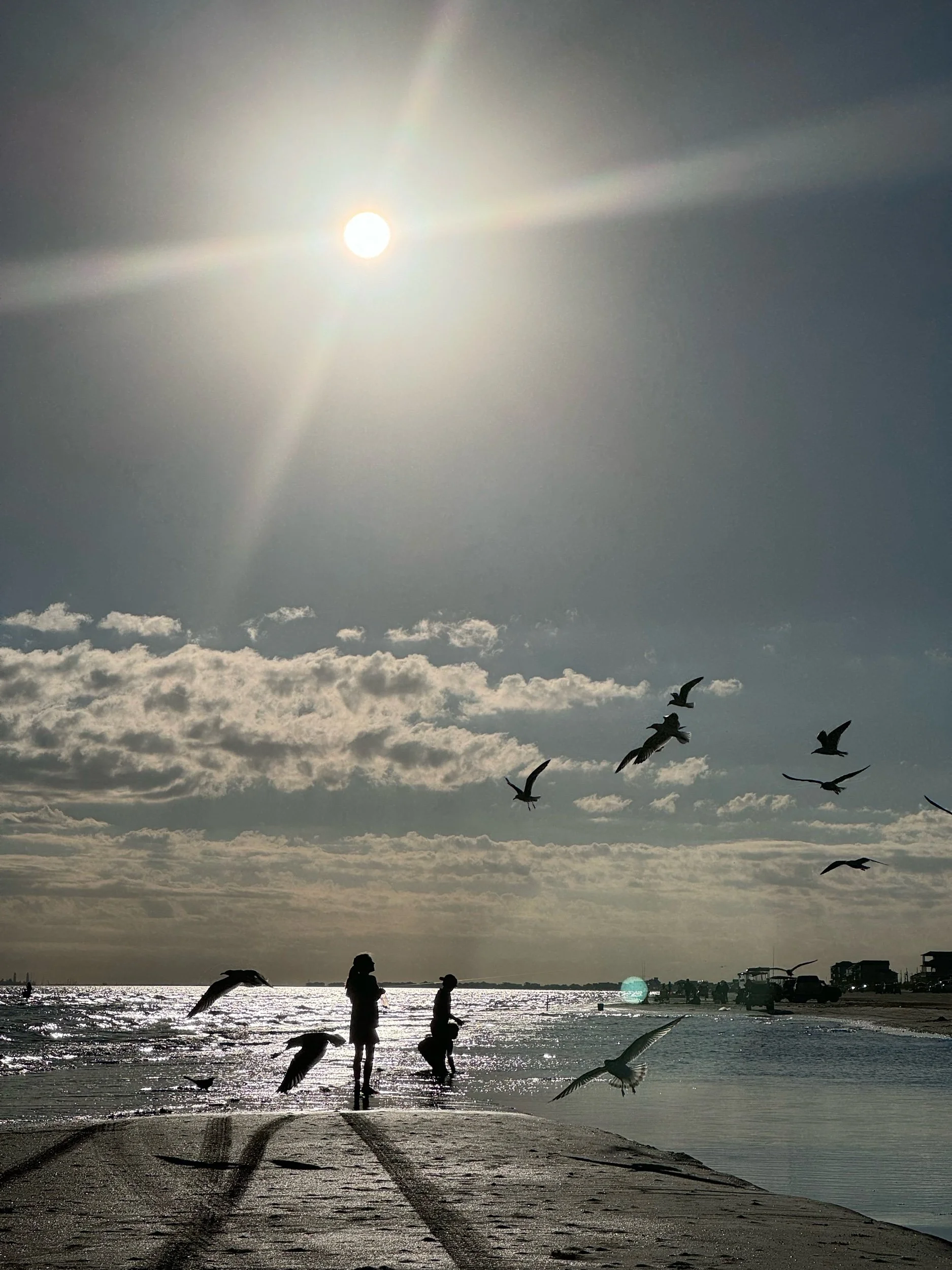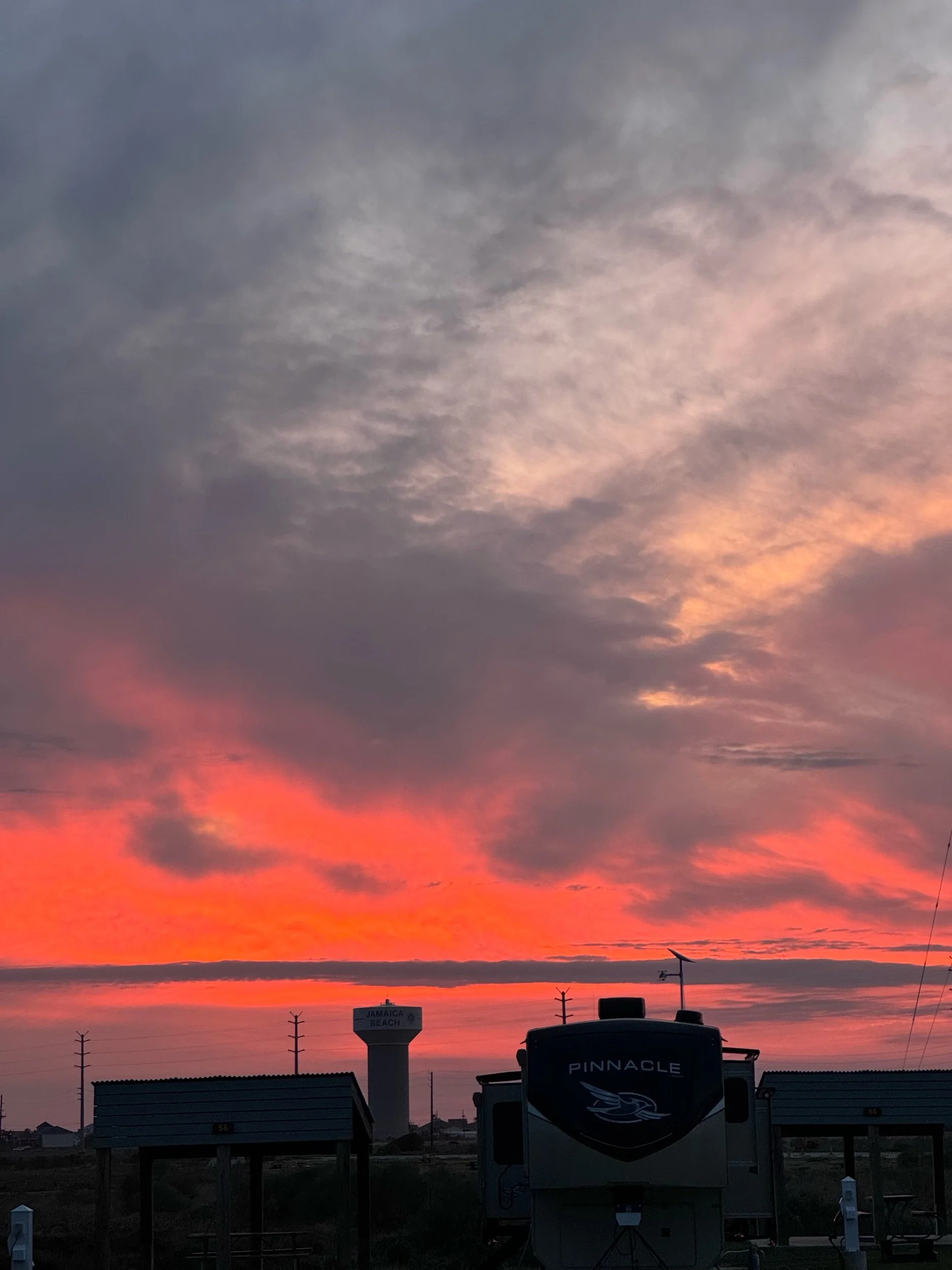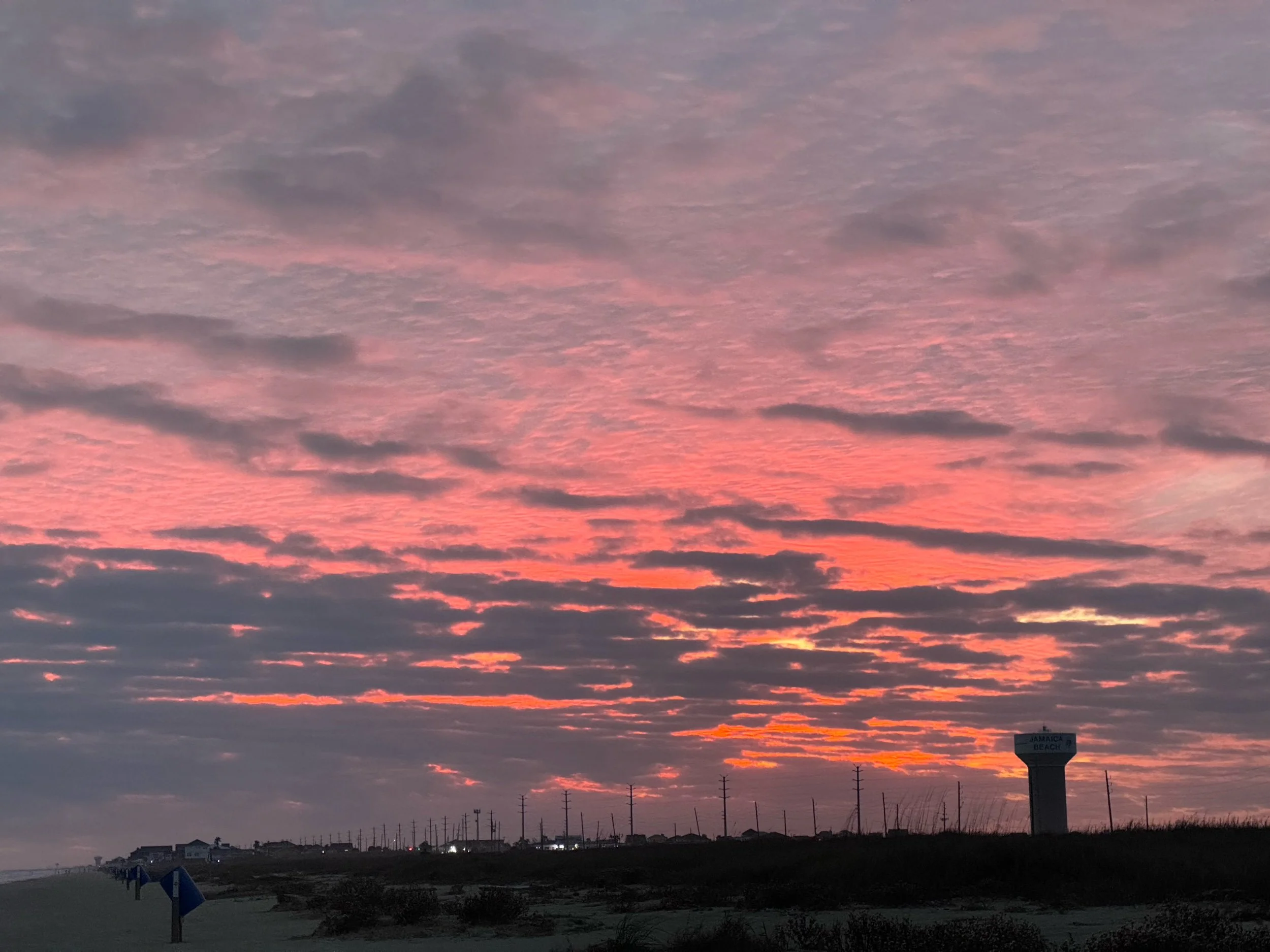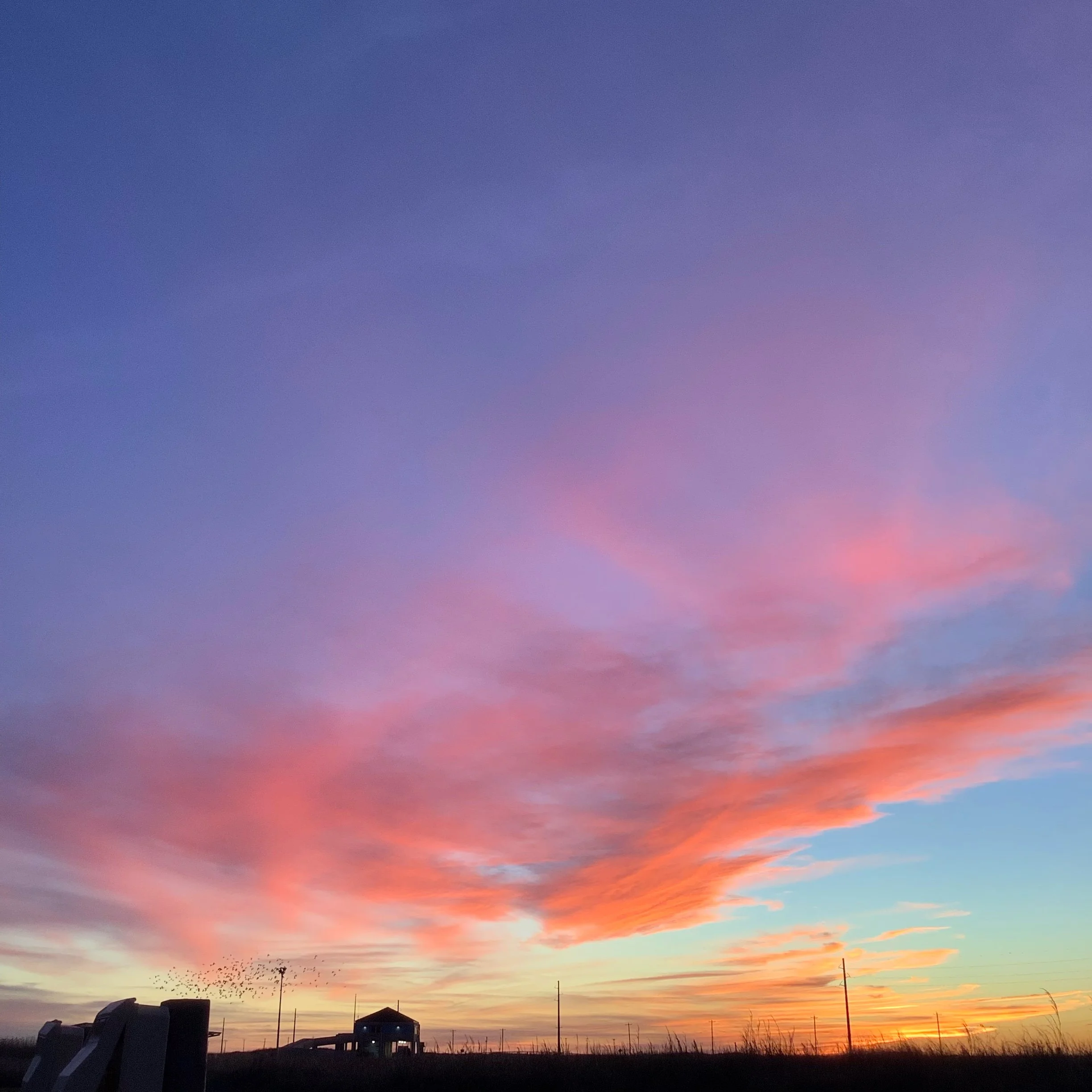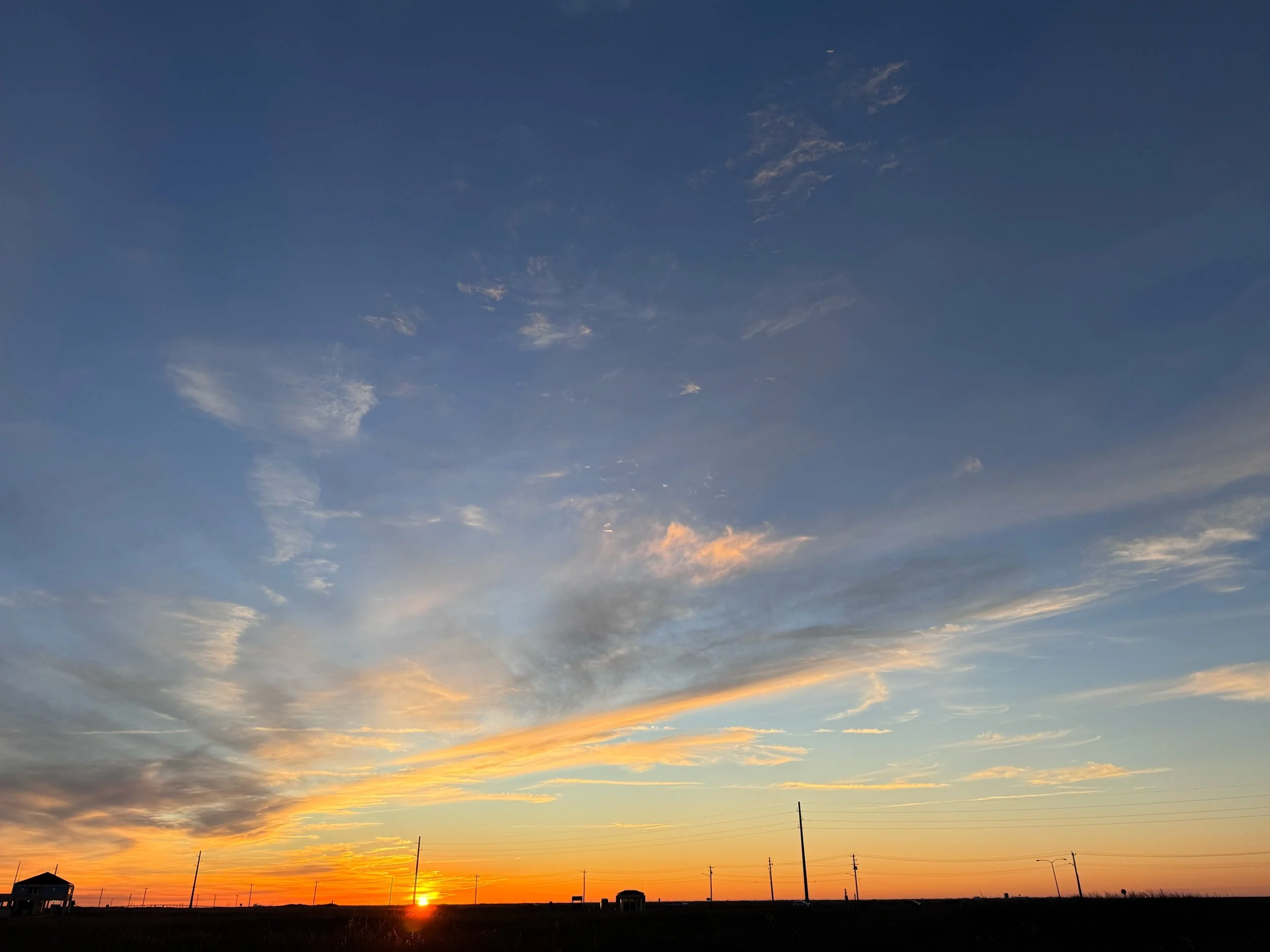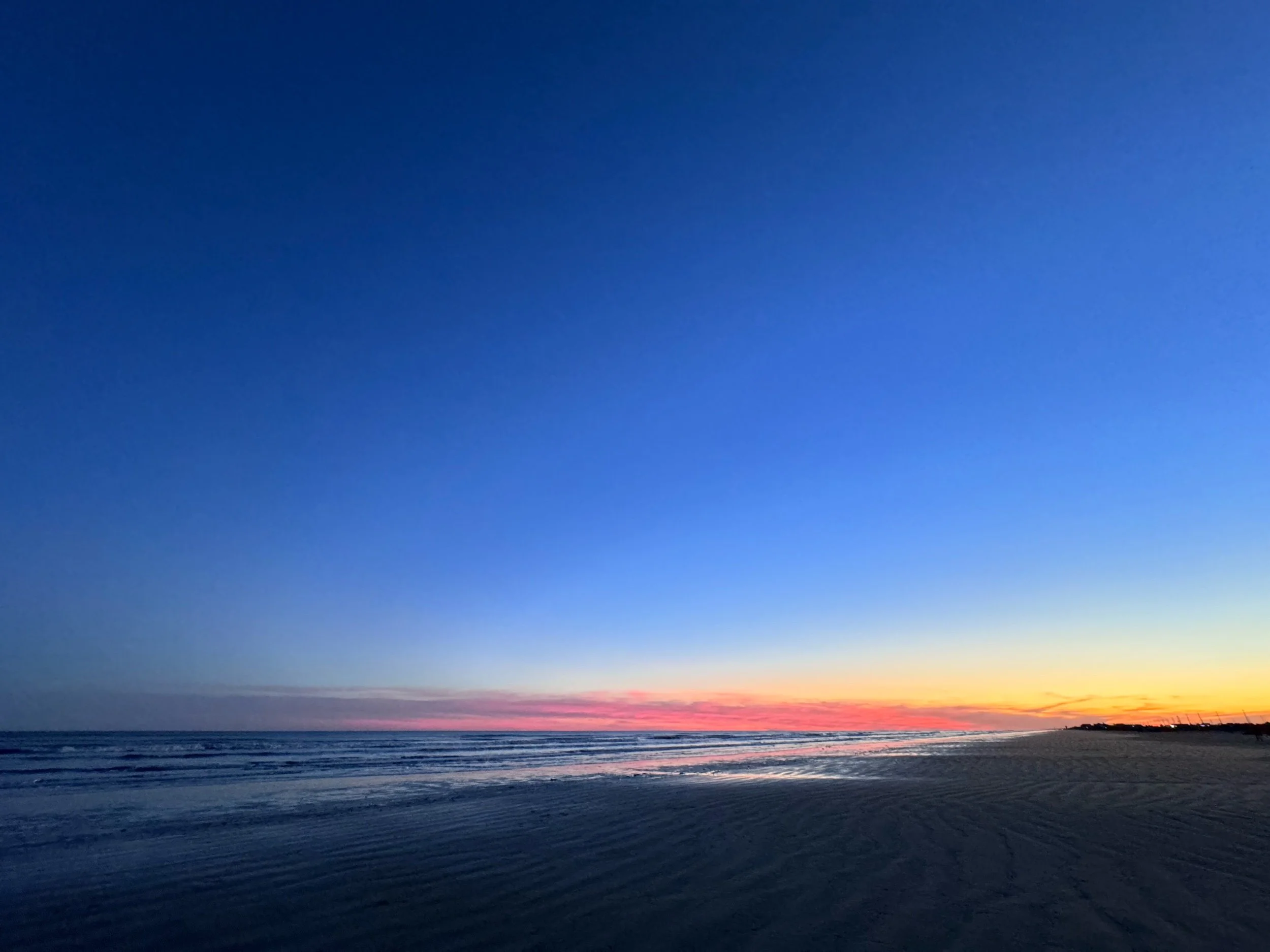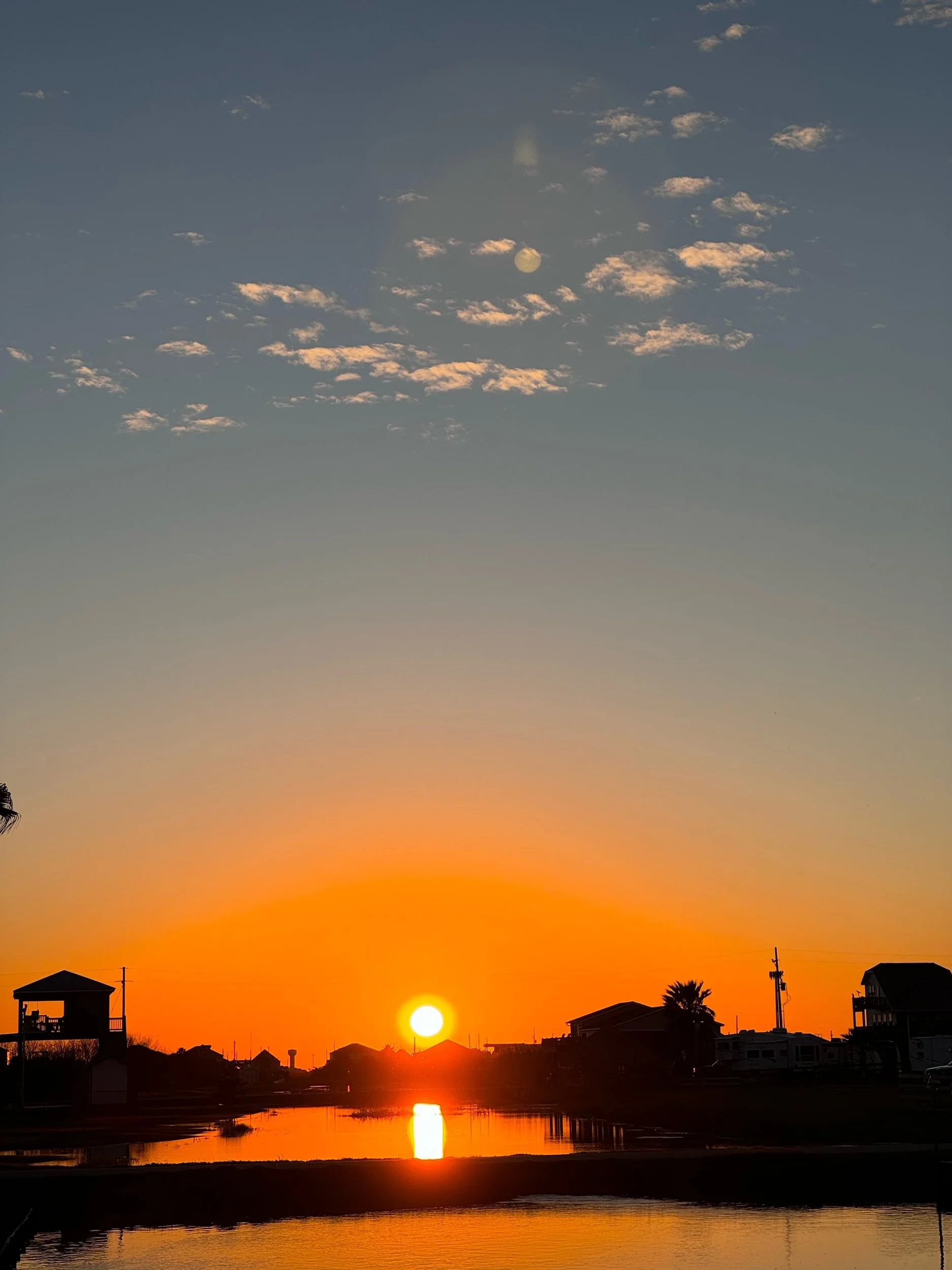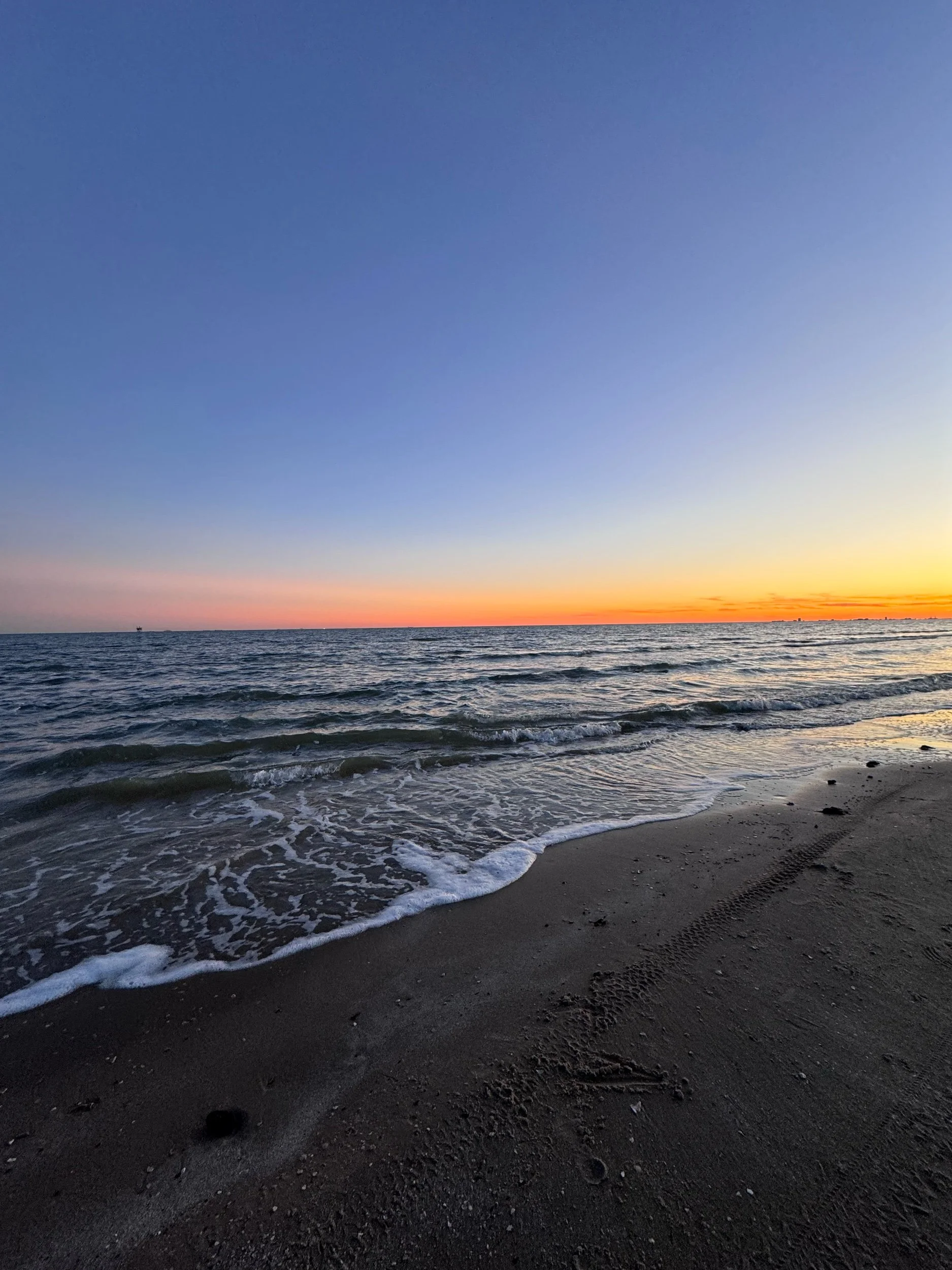Rest as Resistance on The Beaches of Texas
I am feeling well rested and happy to be back from my snow birding trip to Texas. In the midst of magical moments filled with endless walks/runs on the beach, touring little towns and exploring hikes in the beautiful state parks on the coast, boredom randomly would kick on my (van) door. At times I felt annoyed. But mostly a sense of unease would come over me. As I dug deeper in my daily contemplative practices, I found myself unearthing core beliefs of “not good enough” rooted from childhood experiences and the overall societal notion that my value in life is only measured by how productive I am being in this world. Who else has been told over and over “don’t just stand there, do something”? A fresh quiet whisper was inviting me to reverse that sentence: “Don’t just do something, stand (or sit) there”.
My relationship with rest was confrontational and judgmental. There’s been a voice in my head saying "Don't be so lazy! Don't waste the day! There's so much to be done!" This new emerging voice was rebelling and allowing me to question old narratives about deservedness. It was asking me to shed the hypervigilance of the "shoulds", the "have-to's" and the "what if's".
In a world that glorifies productivity and ceaseless activity, the concept of rest often feels like a radical act of rebellion. Hustle culture promotes the idea that one must constantly be grinding, hustling, and striving for success, often at the expense of mental, emotional, and physical well-being. However, through my deep dives into Buddhist and meditation practices, I’ve come to realize that embracing rest can be seen not only as a form of self-care but also as a powerful act of resistance against the pervasive hustle culture. By understanding the importance of rest through the lens of Buddhist teachings and incorporating the changing seasons as a metaphor, I am learning to reclaim my time, energy, and sense of inner peace. I have contemplated on these three Buddhist principles as I’m changing my relationship with rest:
1. Impermanence and the Seasons of Life: In Buddhism, the concept of impermanence teaches us that everything is in a state of flux, including our own lives. Just as the seasons change, so do the circumstances of our lives. Recognizing and accepting this natural ebb and flow allows us to embrace periods of rest without guilt or shame. Just as winter follows autumn, there are times when it is necessary to slow down, reflect, and recharge. By honoring the changing seasons within myself, I am able to cultivate a deeper sense of self-awareness and harmony with the rhythms of life.
2. Non-Attachment and Letting Go: Central to Buddhist philosophy is the principle of non-attachment, which encourages us to let go of our attachment to outcomes and desires. In the context of hustle culture, there is often a relentless pursuit of external markers of success, whether it be wealth, status, or recognition. However, true contentment arises not from constantly striving for more but from learning to be present with what is and finding joy in the simplicity of each moment. Resting is an act of letting go of the need to constantly achieve and allowing ourselves to simply be. I had so many of these moments of pure bliss being mesmerized by simple things like the sunsets, the stars, the ocean waves. By practicing non-attachment, I can free myself from the relentless pursuit of productivity and find peace in the present moment.
3. Mindfulness and the Power of Being Present: Another fundamental teaching in Buddhism is the practice of mindfulness, which involves paying attention to the present moment with openness and curiosity. In a culture that values multitasking and constant busyness, rest provides an opportunity to cultivate mindfulness and reconnect with ourselves on a deeper level. Just as the changing seasons invite us to notice the beauty in each moment, rest allows us to slow down and savor the richness of life. By being fully present with my thoughts, feelings, and sensations, I am slowly gaining insight into my innermost desires and cultivating a greater sense of clarity and purpose.
As I continue to go through a season of changes, I have been shedding core shame, old beliefs, old desires and outdated self-images. Rest for me has become a radical act of self-care but also a profound spiritual practice. Through rest, I am now able to better reclaim my agency and and prioritize my well-being in a world that is constantly tugging for my productivity. I am heading towards better balance, peace and a deeper connection to myself and the world around me. This trip ended with feeling more awe, wonder, gratitude and inner peace than ever.

